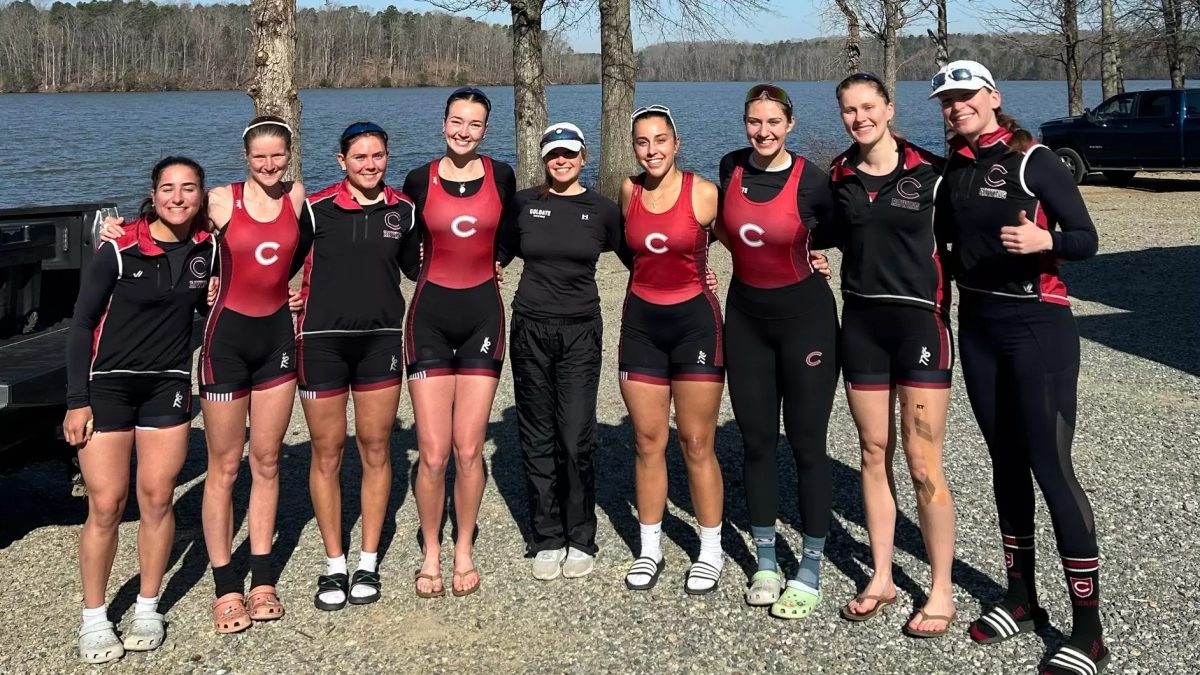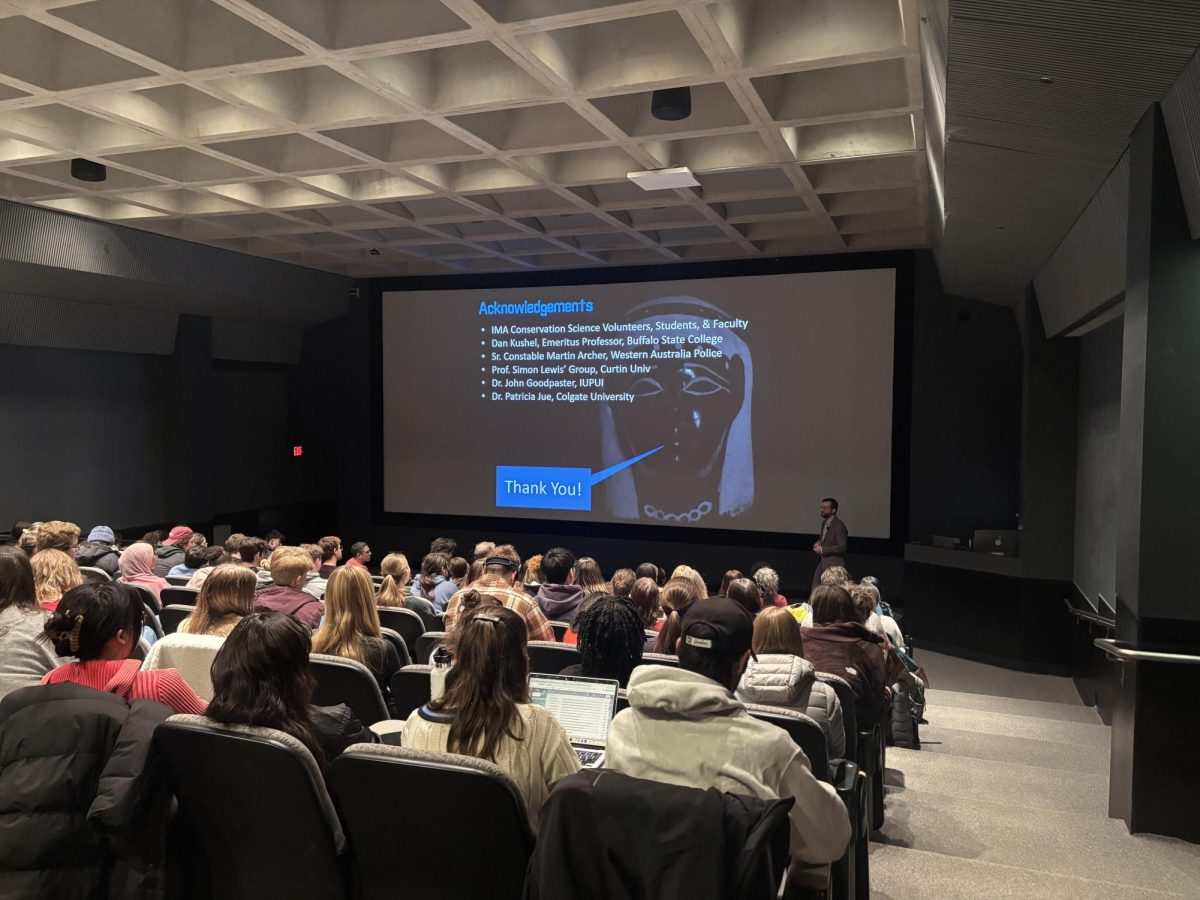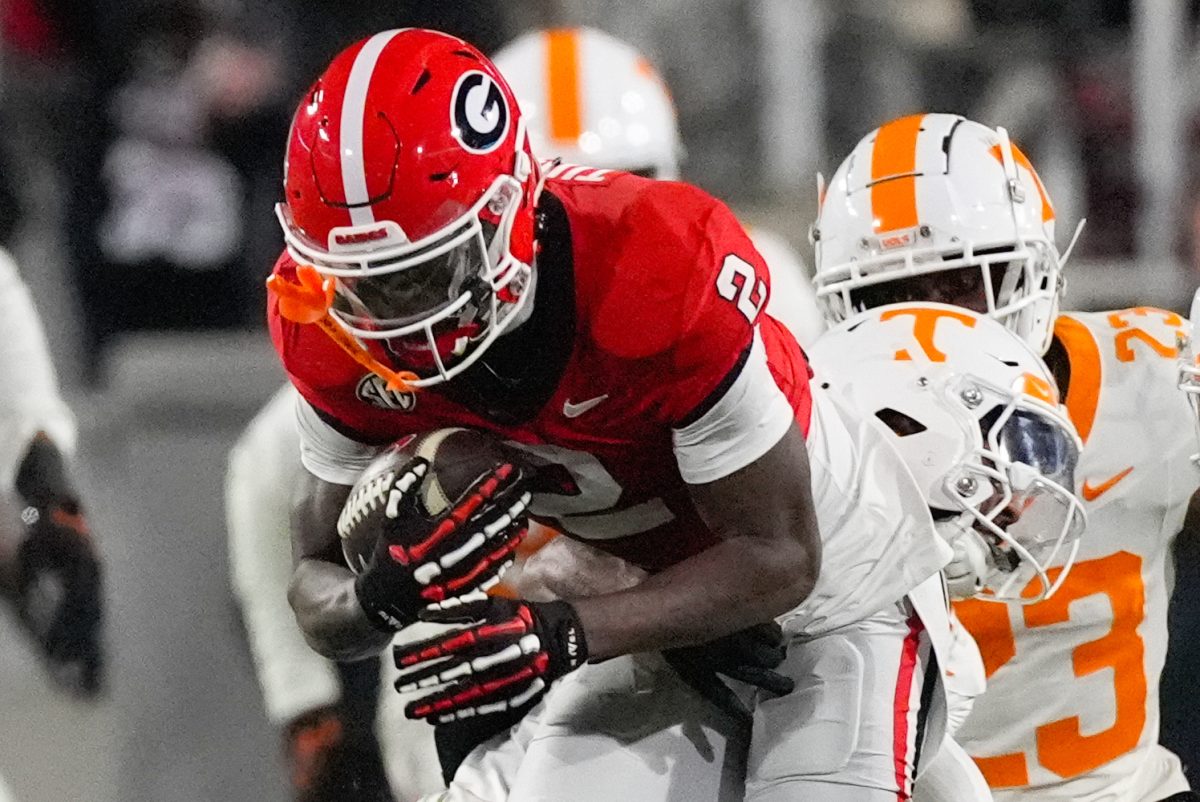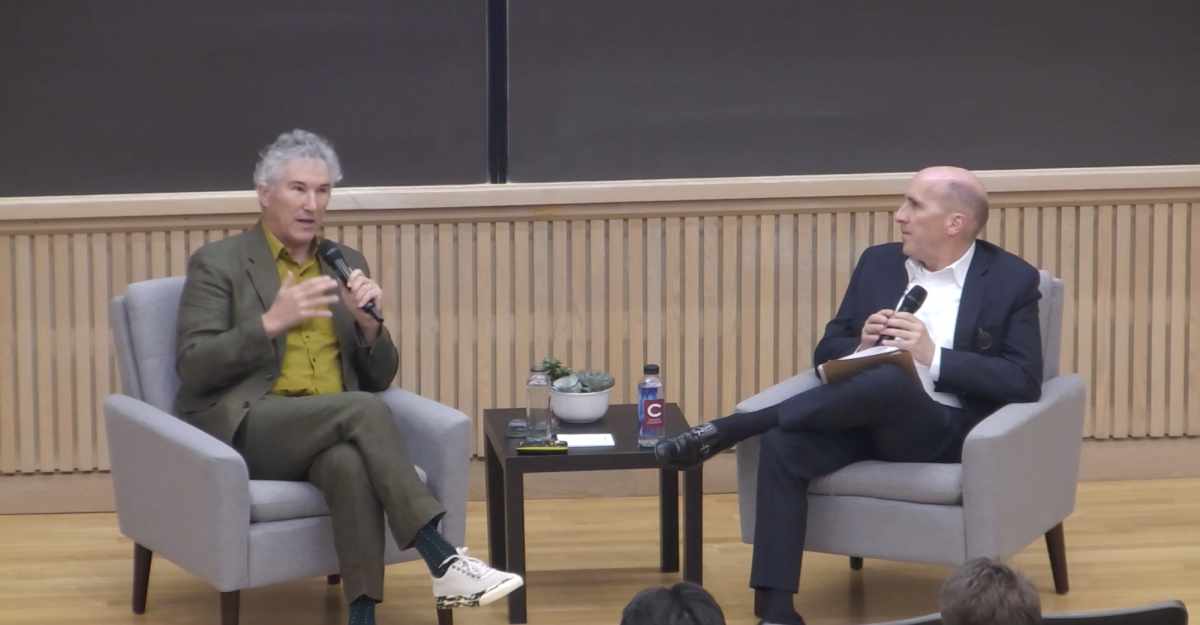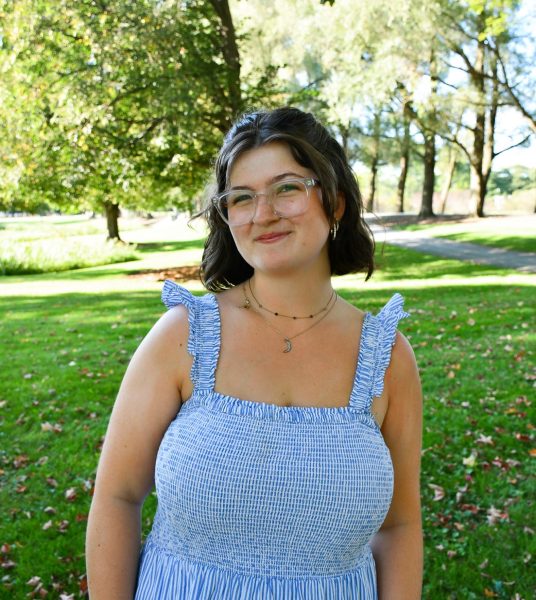Students in Associate Professor of English Ben Child’s ENGL 152 “Plant, Animal, Mineral: American Literature and Extractive Industry” course recently received a special guest: Colgate University President Brian W. Casey.
Child’s class discusses texts of American literature and the environmental impacts that each focuses on. In the middle of the course, students spend multiple weeks discussing Herman Melville’s “Moby-Dick,” both in its contributions to the American canon and what it reveals about the environmental impact of the whaling industry.
Casey wanted to visit Child’s class due to their shared interest in Melville’s classic novel.
“We’ve had this long-running conversation about our mutual obsession with this incredibly complicated and strange novel, and then he goes, ‘I’m teaching a course on it,’ and he just said, ‘You have to come,’” Casey said.
Child spoke about Casey’s impact on the classroom environment during his visit, especially when considering the work that goes into teaching “Moby-Dick.”
“This class is mostly first- and second-year [students], and it feels like a big lift to spend this many weeks on this gnarly, long novel,” Child said. “So, I was really happy that [President Casey] came in because he’s an excellent enthusiast, he’s got a lot of charisma and he really wanted to talk about his own long history with this book, how he came to love it and why he thinks it’s so important.”
Sophomore Abby Call is enrolled in ENGL 152 and enjoyed hearing about President Casey’s continuous learning process with “Moby-Dick.”
“He referred to his connection with the novel as a ‘lifelong wrestle,’ and said that to begin to understand its complexity, he must humble himself again and again,” Call said. “I found it particularly interesting that every time he re-read the novel, it took on a new meaning, according to the new phase of his life. President Casey made me realize that the novel’s brilliance stems from its incomprehensibility in a single moment in time.”
As part of his ‘lifelong wrestle,’ Casey mentioned that there was a time in his life when he thought that “Moby-Dick” would become central to his career focus.
“In my prior life, I thought that was the path I was going to be on — that I was going to teach American intellectual and cultural history,” Casey said. “19th and 20th century American literature and intellectual history was my area, and it’s so rare for me to be able to go back to that and be in a classroom. I cannot tell you how thrilling it was to be in a seminar room talking about five specific chapters [of ‘Moby-Dick’]. I spent a dozen years of my life doing that; there’s times when I miss it so much. It was completely delightful.”
Child appreciated having Casey’s unique background and perspective in his classroom.
“He has a Harvard-PhD-level expertise in American history and culture, so he has a lot of really useful insights as an expert,” Child said.
Due to his busy schedule, Casey could only visit for one session of ENGL 152. Child ensured, still, that Casey would have ample time to discuss his biggest takeaways.
“There’s one thing that he was really keen to talk about, which is chapter 42 of ‘Moby-Dick,’ that’s called ‘The Whiteness of the Whale,’” Child said. “He says this is one of the most important passages in all of American literature — this chapter 42. So, we had the chance to let him explain what he meant by that, and the students engaged with him on that issue.”
After Casey’s visit, Call made connections to how literature informs current perceptions of the world.
“My biggest takeaway from President Casey’s time in our class was the importance of historical literature in forming our morals today,” Call said. “It reminded me of the value of learning that is slow and unsettling. In a world where almost all of the media we consume is designed to be instantaneously entertaining and easily digestible, President Casey reminded us of the importance of ‘humbling yourself’ before literature.”
Child believed that having the University’s president visit a classroom was an impactful experience for students.
“I think people are really happy to see their president taking seriously the stuff that happens in classrooms. I’m happy to see that, too — it’s great to know we have a president who’s doing kind of macro stuff, like raising money, overseeing all the capital improvements and trying to understand all the complicated things that are involved in running an institution, but is also invested in all of the very micro stuff,” Child said.
Casey’s classroom visit provided an insightful experience for not only the students, but for the professor and president, as well.







